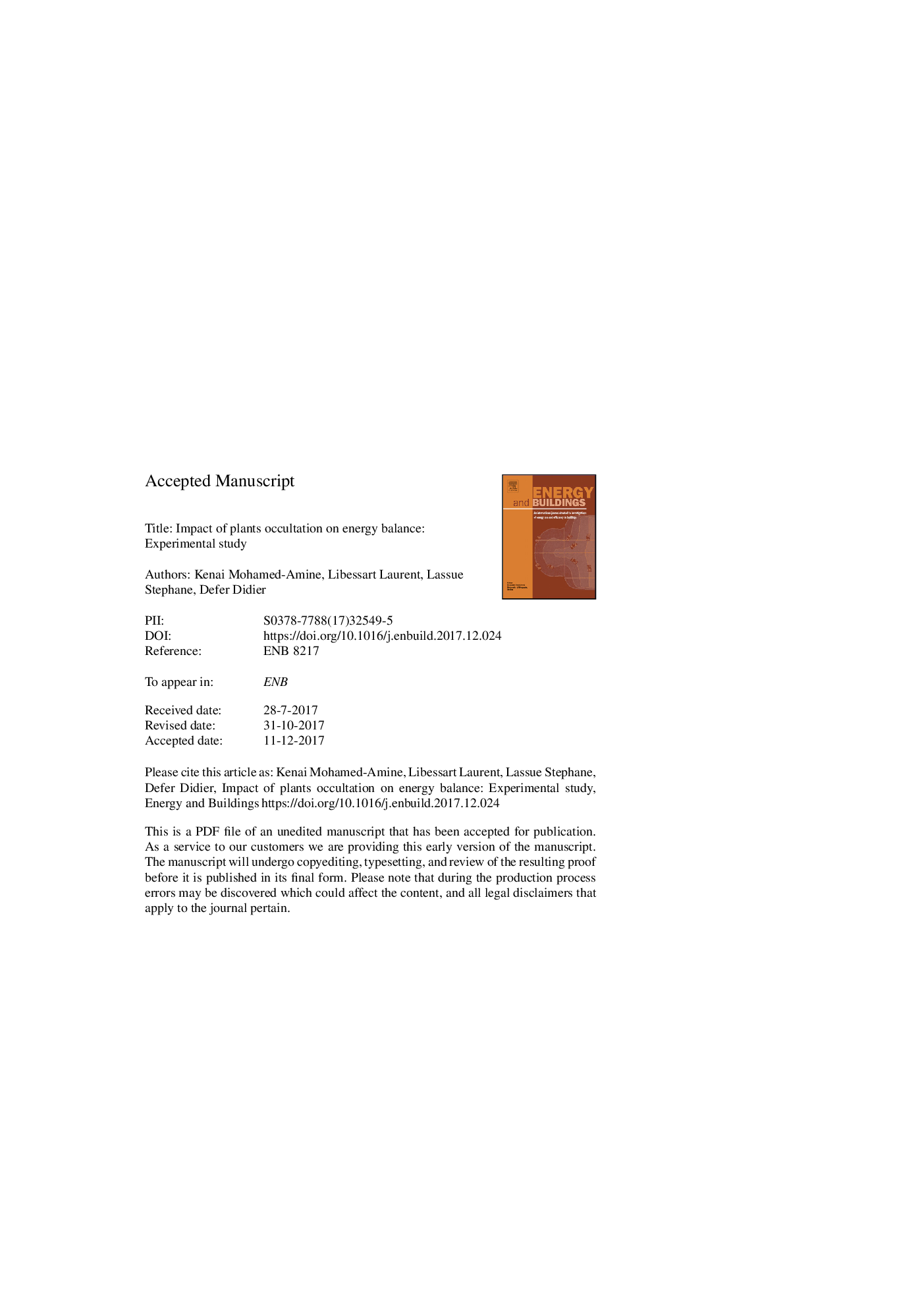| Article ID | Journal | Published Year | Pages | File Type |
|---|---|---|---|---|
| 6729058 | Energy and Buildings | 2018 | 24 Pages |
Abstract
This paper presents the results of the validation of an experimental method for studying the thermal benefits of green façades. The main aim is to evaluate the impact of plants occultation on energy performance of a vertical wall in the temperate climate of the city of Lille in northern France. An experimental platform consisting of three identical prototypes (three boxes as thermal labs) has been designed and instrumented. Each prototype has been highly insulated from each face except from the vertical southern wall which was realized with a poor thermal conductivity material. The following measurements were taken: ambient temperature (outside and inside thermal labs), external and internal surface temperatures of southern walls, heat fluxes transferred through south verticals walls (reference and vegetalized walls), solar incident radiation and wind velocity variation under instantaneous real climatic conditions. This enabled the analysis of the variation of energy balance according to the presence or not of a shading effect on the south vertical walls as well as their coverage rate. Several tests were performed on the three experimental thermal labs by imposing a leaf coverage rate which differs during each measurement. The results have shown that masking reduces the outside temperature and enhances the interior thermal comfort especially during summer.
Related Topics
Physical Sciences and Engineering
Energy
Renewable Energy, Sustainability and the Environment
Authors
Mohamed-Amine Kenaï, Laurent Libessart, Stéphane Lassue, Didier Defer,
